What happens if you drink too much coffee in a day? You’re probably familiar with the comforting aroma of freshly brewed coffee. Whether it’s a morning ritual to kickstart your day, an afternoon pick-me-up, or a way to socialize with friends, coffee’s appeal is undeniable. However, have you ever wondered about the consequences of drinking too much coffee in one day?
Understanding Coffee’s Composition
What’s in Your Cup of Coffee?
Coffee’s unique flavor and stimulating effects come from more than just caffeine. A single cup contains various compounds, including antioxidants, vitamins, and minerals. Each component plays a role in how coffee impacts your health.
| Component | Average Amount in One Cup (8 oz) |
|---|---|
| Caffeine | 95 mg |
| Antioxidants | Varies |
| Magnesium | 7 mg |
| Vitamin B2 (Riboflavin) | 0.2 mg |
| Others | Trace amounts |
The Role of Caffeine
Caffeine is the main active ingredient in coffee and a natural stimulant that directly affects your central nervous system. It’s what gives you that energy boost and makes you feel more alert. However, it’s crucial to remember that everyone’s sensitivity to caffeine can vary.
Immediate Effects of Drinking Too Much Coffee
Jitters and Restlessness
If you’ve ever experienced that slight trembling after downing a few too many cups, you’re familiar with the jitteriness that too much coffee can cause. This happens because excessive caffeine stimulates your central nervous system to the point of overactivity.
Insomnia and Sleep Disruption
Your morning might begin on a high note with coffee, but too much of it can sabotage your night. High caffeine intake, especially in the afternoon or evening, can interfere with your sleep. You might find it harder to fall asleep or experience a more restless night.
Increased Heart Rate and Blood Pressure
If you’ve ever felt your heart racing after drinking coffee, it’s not your imagination. High doses of caffeine can temporarily elevate your heart rate and blood pressure, which might be concerning if you have heart-related issues.
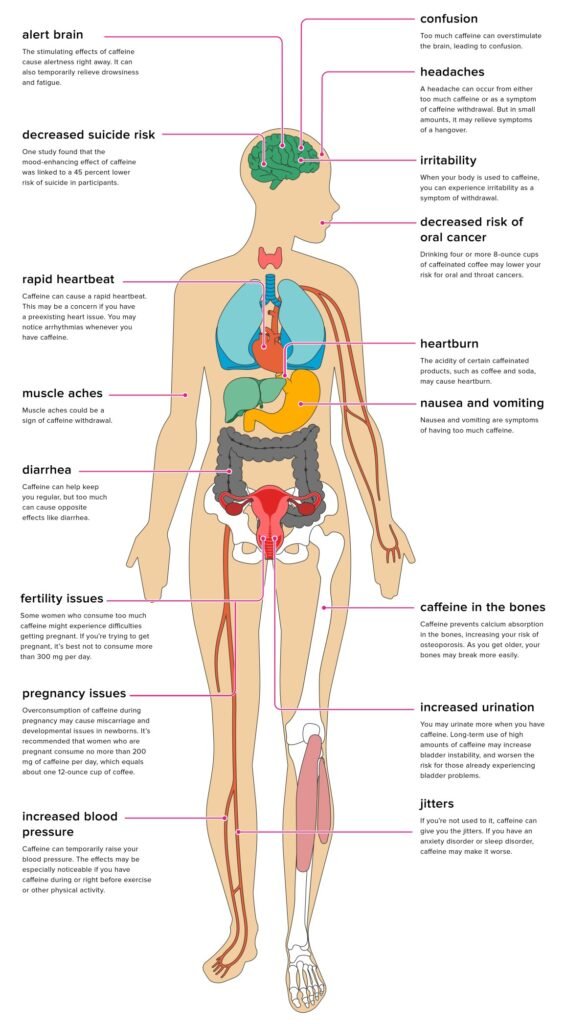
Long-term Health Implications
Dependency and Tolerance
It’s easy to become reliant on that morning cup of coffee to jumpstart your day. Over time, your body can build a tolerance to caffeine, meaning you’ll need more of it to achieve the same energizing effects. This can lead to dependency.
Digestive Issues
Drinking too much coffee can irritate your digestive system. Caffeine increases stomach acid production, which can lead to heartburn or acid reflux. Moreover, it acts as a diuretic, which can increase your trips to the bathroom and potentially cause dehydration.
Anxiety and Mental Health
While a moderate amount of caffeine can improve your mood and mental performance, excessive consumption can have the opposite effect. Too much caffeine can lead to increased anxiety, nervousness, and even induce panic attacks in sensitive individuals.
Specific Groups at Risk
Pregnant Women
If you’re pregnant, you might need to be extra cautious with your coffee intake. High caffeine levels can cross the placenta, affecting the developing fetus. Limited studies suggest that high caffeine consumption could increase the risk of low birth weight or even miscarriage.
People with Heart Conditions
If you have any pre-existing heart conditions, excessive caffeine could exacerbate them. It’s crucial to consult your doctor about your coffee consumption if you fall into this category.
Adolescents and Children
Did you know that children and teenagers metabolize caffeine differently? Their smaller body size and different metabolic rates can make them more susceptible to the negative effects of too much caffeine. For this reason, it’s often recommended that younger individuals limit their intake.
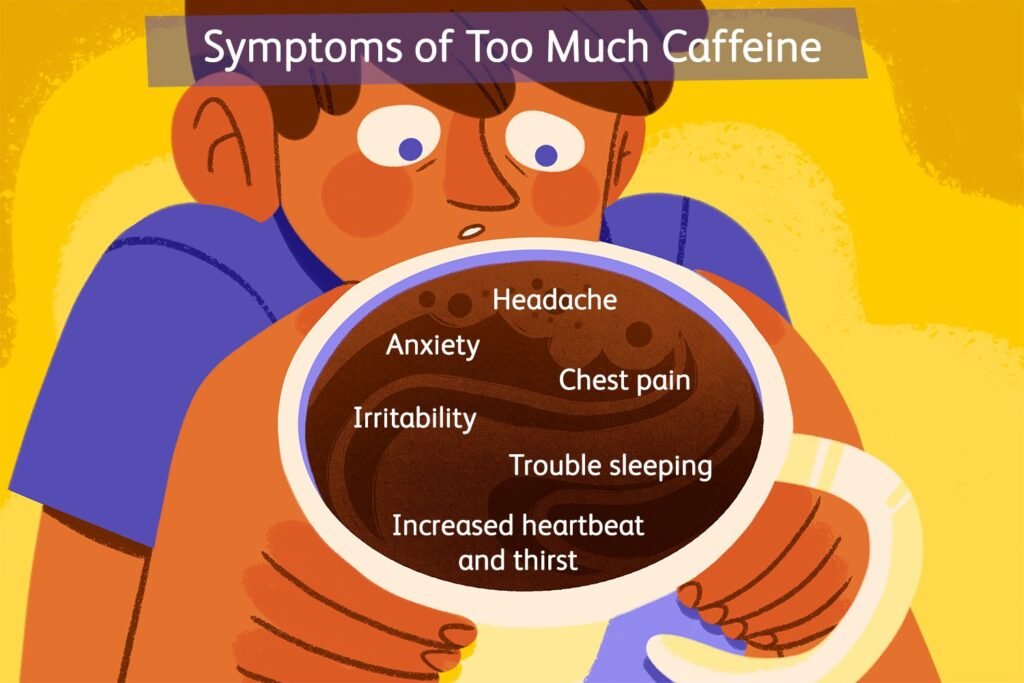
Daily Recommended Limits
General Guidelines
It’s generally recommended that adults keep their caffeine intake below 400 mg per day, which equals roughly four 8-ounce cups of coffee. However, individual tolerance levels can vary, and some people might need to consume less.
| Age Group | Recommended Caffeine Limit |
|---|---|
| Adults | 400 mg per day |
| Pregnant Women | 200 mg per day |
| Adolescents (12-18 years) | 100 mg per day |
| Children (Under 12 years) | Consult a healthcare provider |
Customizing Your Intake
Your individual tolerance to caffeine can depend on multiple factors, such as your genetics, overall health, and how frequently you consume caffeinated beverages. Paying attention to your body’s signals can help you determine the right amount for you.
How to Manage Your Coffee Consumption
Alternating with Other Beverages
Switching between coffee and other hydrating beverages like water, herbal tea, or decaffeinated coffee can help manage your caffeine intake. This approach not only reduces your caffeine consumption but also keeps you adequately hydrated.
Gradual Reduction
If you’re looking to cut back on your coffee intake, consider doing so gradually. Sudden reductions can lead to withdrawal symptoms such as headaches, irritability, and fatigue. Slowly reducing the number of cups per day can make the transition smoother.
Mindfulness and Awareness
Staying mindful of your coffee habits can help you make better choices. For example, if you’re aware that consuming coffee late in the day affects your sleep, you can opt for a morning-only routine. Keeping a simple journal of your coffee consumption and its effects can be surprisingly insightful.
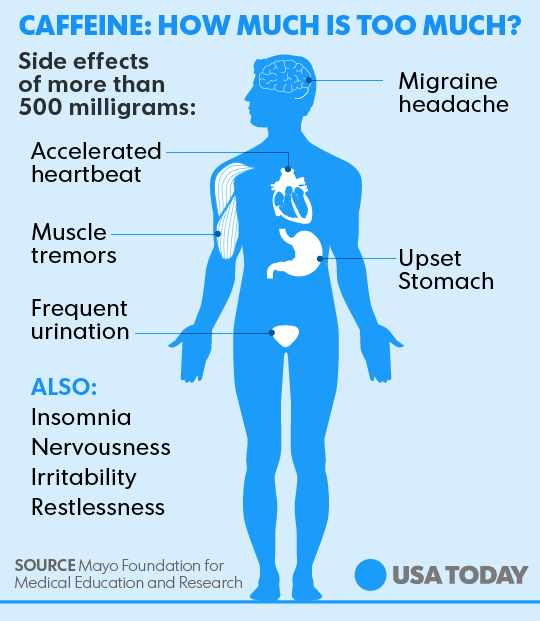
Benefits of Moderation
Enhanced Mood and Focus
Moderate coffee consumption can boost your mood, improve focus, and enhance cognitive function. When consumed within recommended limits, the positive effects of caffeine can enhance your productivity and overall well-being.
Health Perks
Coffee isn’t all bad. It’s rich in antioxidants, which help combat oxidative stress and reduce the risk of chronic diseases. Studies have shown that moderate coffee consumption can lower the risk of certain conditions, such as Parkinson’s disease, Alzheimer’s disease, and type 2 diabetes.
Alternatives to Coffee
Herbal Teas
If you’re looking to cut back on caffeine, herbal teas are a fantastic alternative. They come in various flavors and offer health benefits without the caffeine. Options like chamomile, peppermint, and rooibos are not only delicious but can also help you unwind.
Decaffeinated Options
Decaf coffee can be a good middle ground if you love the taste of coffee but want to avoid the caffeine. Though it contains trace amounts of caffeine, it’s usually low enough to prevent jitteriness and other negative effects associated with caffeine.
Nutrient-Rich Smoothies
Why not switch things up with a nutrient-rich smoothie? Blending fruits, vegetables, and a protein source can give you an energy boost without the caffeine. You can even add ingredients like matcha or maca powder for a natural energy lift.
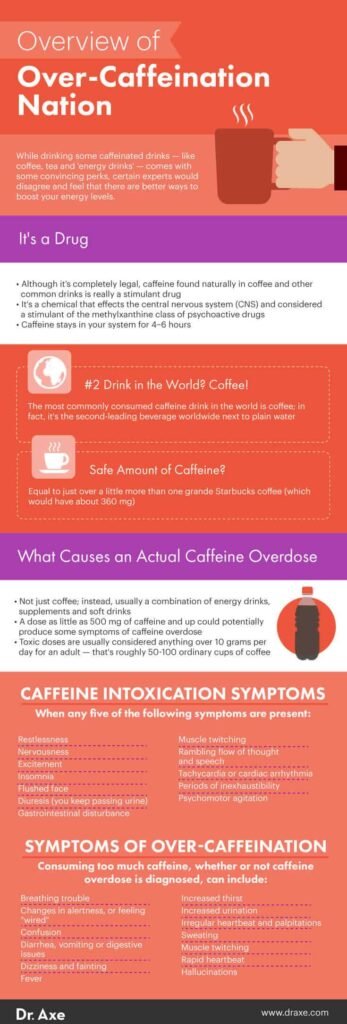
When to Seek Medical Advice
Recognizing Symptoms of Overconsumption
If you notice symptoms such as persistent palpitations, severe headaches, or prolonged insomnia, it might be time to reassess your coffee intake. Pay attention to signs that your body is stressed due to too much caffeine.
Consulting a Healthcare Provider
It’s always a good idea to consult a healthcare provider if you’re unsure about your caffeine consumption, especially if you have underlying health conditions. They can offer personalized advice based on your medical history and current health status.
Real-Life Stories and Insights
Personal Experiences
Hearing from others can often give you a fresh perspective. Many people have shared their journeys of cutting back on coffee and the noticeable improvements in their health and well-being. These stories can be both motivating and informative.
Expert Opinions
Experts in nutrition and healthcare emphasize the importance of moderation. They often recommend being mindful of your caffeine consumption and checking in with your body’s signals.
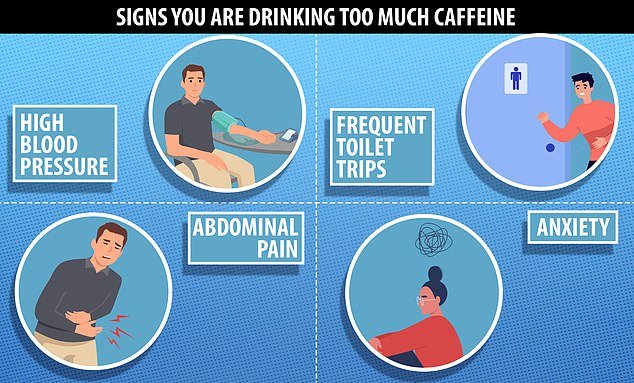
Conclusion
Moderation is key when it comes to enjoying your coffee without experiencing negative consequences. By understanding your body’s tolerance, being mindful of your consumption, and exploring alternative beverages, you can savor your daily cup of joe while maintaining optimal health. Remember, it’s about finding a balance that works best for you.
So, the next time you reach for that extra cup, you’ll be well-informed about the potential impacts and better equipped to make a choice that suits your well-being.
